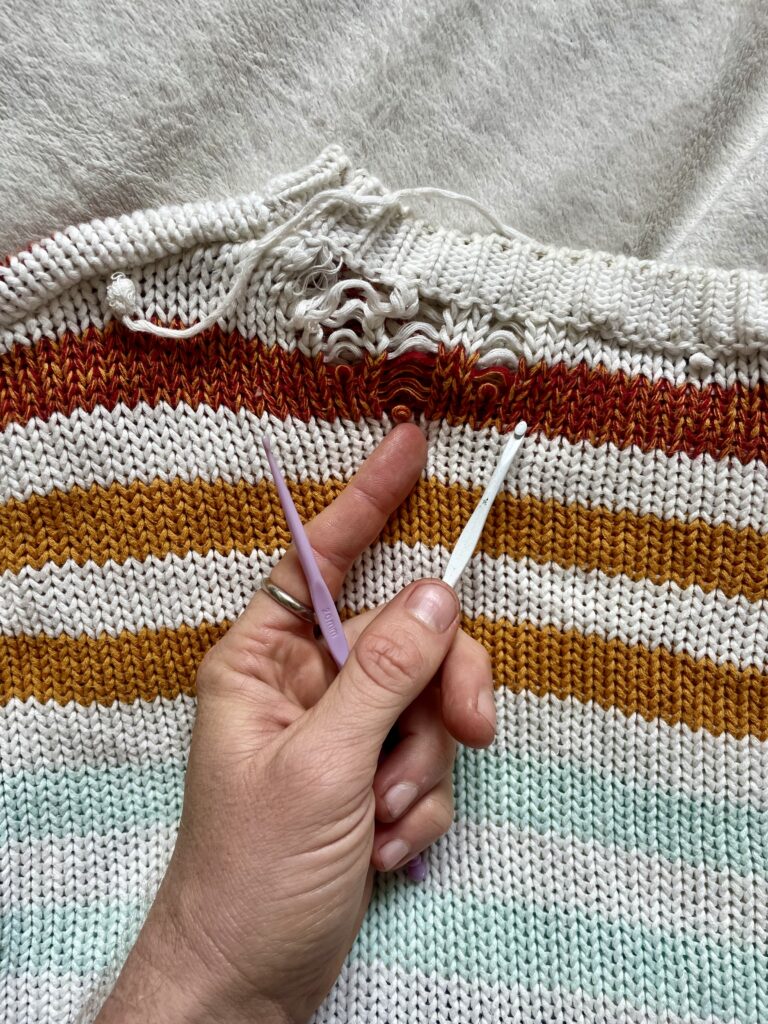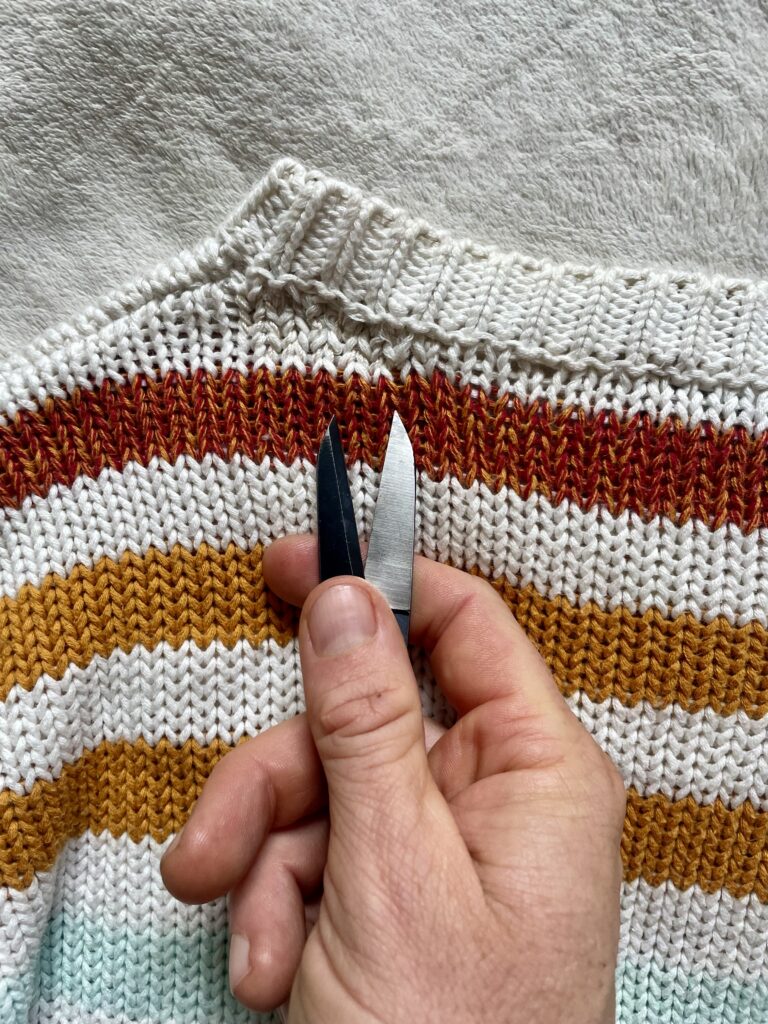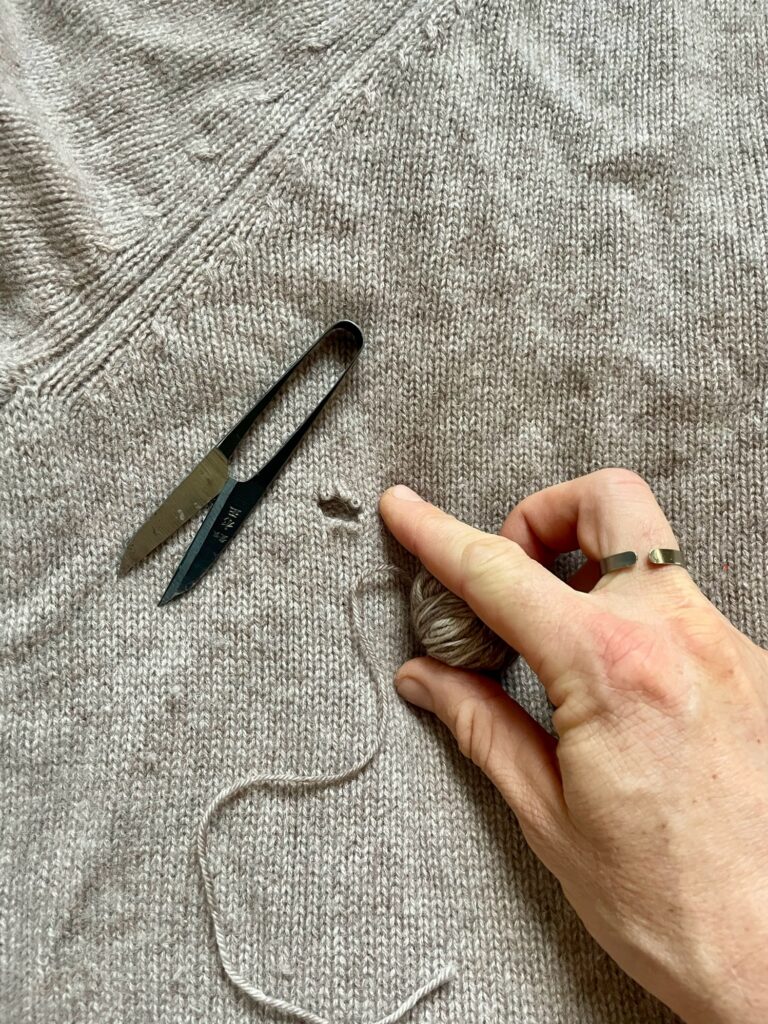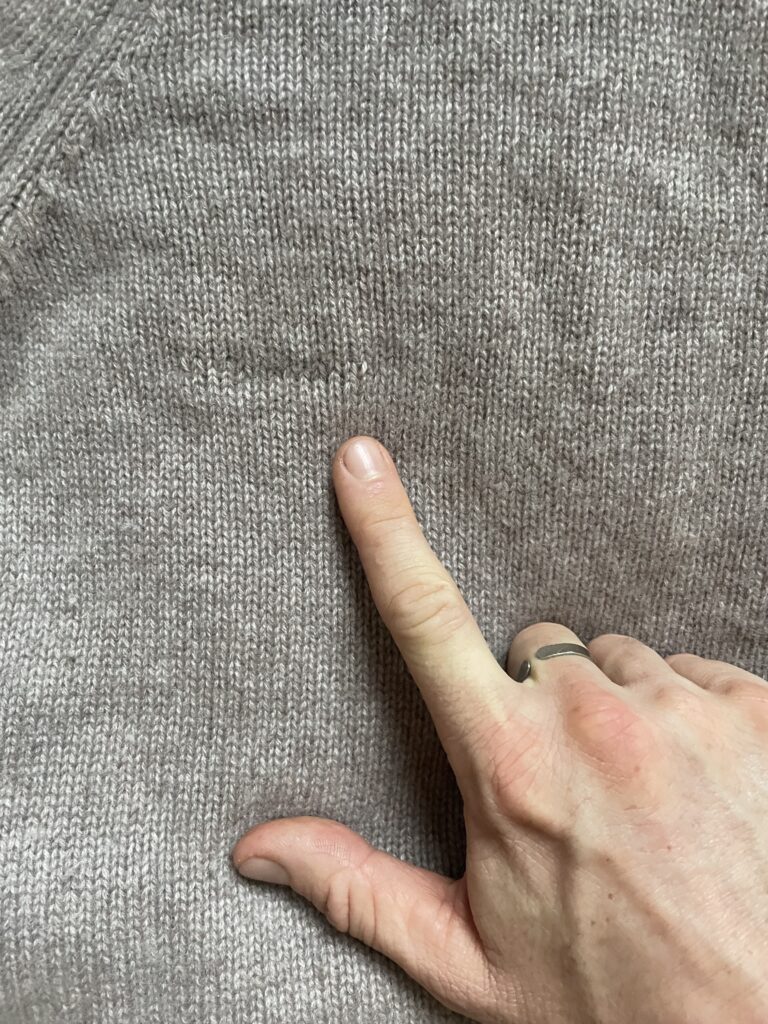
Mending, if not an antidote to corporate capitalism, can at least temper the worst of its effects. Because mending is largely a story of granular, community-sized, micro-economics, rather than global markets and franchise.
Each time you choose mending, you keep more dollars in your immediate community. Because if you do your own repairs, you save some money. And if you pay someone else to do it, the vast majority of repair services out there – dry cleaners, tailor shops, and independent menders like myself – are highly localized businesses, occasionally just individuals. Mending exists within the context of an artisan economy rather than an industrialized or corporatized one. Or at least that’s how I think of it.
So I was very on board with an article from the New York Times shared by a few friends about a repair shop in Greenwich Village. At least initially.
Two entrepreneurs, Emma Villeneuve and Bjorn Eva Park, opened their repair shop, Eva Joan, in 2021 to offer the kind of service they were not seeing in a general market: comprehensive restorations and bespoke collaborative repair. The pair had spent most of their professional lives in careers unrelated to mending. Sewing was just a hobby for each. That’s exactly the kind of origin story I like to see, if for no other reason than it’s not so different from my own. A case of passionate amateurs reaching for the brass ring.

And I really like the Hippocratic spirit they bring to each repair, asking each customer how they wear the garment, on what occasions, do they have particularly fond memories with it, etcetera. Establishing not just competence but building confidence. “There is no common customer just like there is no common project,” said one of the business owners. Brava.
Of course, their prices are a tad high – $8 for a button? $55 for hemming ?? – but that’s also the reality of operating a repair service in Manhattan. And some of their prices are frankly more reasonable than my own. For example, I charge $10 for hand mending a hole, but Eva Joan charges $25, which is a number more factually in line with the skill and time required.
But my suspicions on Eva Joan’s business model were aroused by a paragraph which begins “Ms. Park and Ms. Villeneuve are hoping to spread their ethos,” and which ends, “Recently, the owners hosted a retreat in Tuscany, Italy, where about a dozen attendees spent a weekend learning mending techniques.”
Mi scusi? Do needles work differently in Italy? Is thread somehow more tensile on that side of the Atlantic? Of course, there is quite frequently an economic disconnect between those who provide a service and those who can afford to pay for it. I’ve written about this before. But…weekends in Tuscany just to learn to darn socks? I teach the same class at the local library. And there’s hundreds if not thousands of hours worth of mending content on YouTube. Of course, these don’t have the benefit of some vino on a terrace while the campanile chimes, but nor do they require a passport inspection and a good frisking by the TSA.

I have no doubt that the pair behind Eva Joan are talented menders – and clearly savvy business owners – but it was the subsequent paragraph where I really turned against their model.
‘Now, they are looking to expand their programming and to open other Eva Joan repair shops in other cities. They want their storefront to be “as ubiquitous as a laundromat,” Ms. Park said, “though we will of course be careful and intentional about it.”’
Of course, laundromats have been on the decline in the U.S. for decades, but I understand the point. I would have no objection at all had Park said that they wanted neighborhood mending to be ubiquitous. I would stand up and applaud that advocacy! (“Yes! More artisans! More small businesses! More neighborhood economics!”) But, it’s that they expressed they want their own storefront to be that ever present service.
Mi dispiace, but I think the only care and intention Park and Villeneuve are taking is with the balance books.
I don’t think laundromats are the service they’re looking to replicate. I think it’s Starbucks. Or, since they’re probably going after a much higher earning clientel – to judge by that jaunt to Tuscany – Equinox Fitness, or SoulCycle. A product that traffics in the illusion of robust good health, moral rectitude, and toil by cosplaying at peasantry.
Of course they want their business to succeed, and I can’t fault them for that. But I can also guarantee that wherever Eva Joan is looking to expand there are already talented menders who could operate businesses every bit as successful as their own. So, what if we thought of economics like ecosystems rather than industries? That an abundance of small businesses makes for a more resilient economy than Wendys and Walmarts from coast to coast. It certainly would make for a more interesting one.
Obviously, I am not anti-mending. And I frequently stress in classes that I teach the way that I know how to mend, and that my methods are not the correct or only way to go about it. But it’s a real disappointment to see someone take an anti-corporate profession like mending with explicit aspirations to corporatize. Especially since mending is such a profound and personal response to…well, I hesitate to say evils but…the misguided abundance of the modern world.
Do I want my own business to grow? Yes, undoubtedly. While mending and teaching mending does introduce breathing room into my monthly budget, it still isn’t enough by itself to even cover rent. (I make most of my monthly income working for a restaurant) I would love for my own skills as an artisan to cover all my expenses – rent, utilities, groceries, health insurance, savings, retirement, etcetera – and I do think that is possible. I’m certainly trying to move in that direction. I just hope by the time I get there Eva Joan hasn’t devoured the market.
